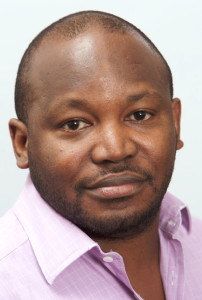 One Friday afternoon in May, I sat in my local library in London, surrounded by young men and women, who looked mostly like students studying for examinations. As they buried their heads in their books or scanned their laptop screens, I furiously tapped at the screen on my phone, causing a few heads to look up at me.
One Friday afternoon in May, I sat in my local library in London, surrounded by young men and women, who looked mostly like students studying for examinations. As they buried their heads in their books or scanned their laptop screens, I furiously tapped at the screen on my phone, causing a few heads to look up at me.
My fervid activity was in the cause of answering questions from people in Nigeria about cardiovascular disease and the risk factors associated with it. My tapping was part of #PollingFriday, a weekly Twitter chat that is organised by Nigeria’s first polling organisation, NOIPolls, to publicise the results of their latest polls. Through Twitter, members of the public are encouraged to ask questions about the polling topic, and an expert on said topic is invited to answer their questions.
I was taking part because EpiAfric—a public health training, research, and consultancy outfit that I am helping set up in Nigeria—had just run a joint poll on cardiovascular disease risk factors with NOIPolls.
NOIPolls was established eight years ago, and uses a proportional stratified sampling method to conduct mobile phone based opinion polls across Nigeria. Their experience in this area provided an opportunity for collaboration and for the joint poll—the first in a series on health issues. We chose to focus on cardiovascular disease risk factors as this is a growing area of significance in Nigeria’s population health.
Eager to gather as much data as possible, we designed an initial comprehensive questionnaire, with colleagues at EpiAfric providing the health expertise. However, this had to be modified, as the polling protocol that NOIPolls use only allows eight questions to be asked so that respondents are not overburdened.
Selecting which questions to focus on was challenging, but in the end we were able to formulate eight questions that asked about awareness of heart disease, personal perception of cardiovascular disease risk, weight and height, blood pressure levels, and self reported smoking and physical activity.
Some of the findings from the poll were:
• 77% of all those surveyed were not concerned about their personal risk of cardiovascular disease. An interesting finding given that we calculated 48% of those sampled were obese or overweight based on their self reported weight and height.
• 67% had their blood pressure checked in the last year, and 85% of these respondents said their blood pressure had been normal when last measured.
• 7% said they smoked cigarettes, with regional and age group variation.
There were obvious limitations to the survey, such as the fact that it was limited to owners of a mobile phone (estimated to be 83% of the population in Nigeria), the inability to verify self-reported parameters, and the limited ability to explore answers in depth because of the need to keep the chat short and simple. Of course, these must all be taken into account when interpreting the results.
Nevertheless, the experience provided useful insights. What’s more, it marked an exciting new opportunity to gather population level health data rapidly, and in a country where gathering data and conducting research is often difficult. We were able to complete design, administration of the questionnaire, and data analysis within a week, which was a thrilling experience for me—used as I was to spending weeks designing a questionnaire.
The week that the polls were published (in addition to the Polling Friday Twitter chat), colleagues from NOIPolls and EpiAfric appeared on radio programmes in Abuja, Nigeria, answering questions from the public, and raising the profile of cardiovascular disease and the lifestyle risk factors that influence it.
This was a first pilot, and its success has strengthened plans for further collaboration. There are more opportunities here for us to develop in partnership. For example, we could select a subset of respondents for more detailed interviews or focus group discussions.
Our pilot project strengthened our belief that the rapid growth of mobile phone coverage in sub-Saharan Africa opens up new opportunities for collecting health data for population level health interventions.
Ike Anya is a consultant in public health medicine in London. He is currently on sabbatical writing a book and supporting public health work with EpiAfric in Nigeria.
Competing interests: I declare that I have read and understood the BMJ policy on declaration of interests and I would like to declare the following: I am a consultant to EpiAfric.
